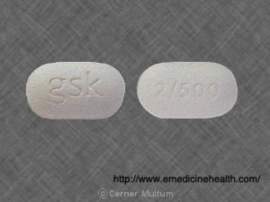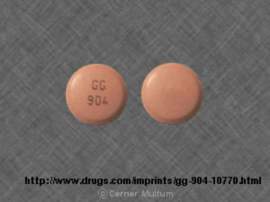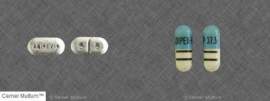
Tricyclic Antidepressants

What are Tricyclic Antidepressants?
Tricyclic Antidepressants are chemical compounds typically used to treat depression. Discovered in the early 1950s—and introduced later in the decade-- Tricyclic Antidepressants are named for their chemical structure, which is comprised of four rings of atoms.
Tricyclic Antidepressants are used primarily for their clinical treatment of mood disorders, such as bipolar disorder, major depressive disorder and treatment-resistant variants. Moreover, Tricyclic Antidepressants are used in the treatment of several medical disorders, including social anxiety disorder, obsessive-compulsive disorder, panic disorder, post-traumatic stress disorder, eating disorders (anorexia and bulimia), borderline personality disorder, attention deficit hyperactivity disorder and generalized anxiety disorder. Tricyclic Antidepressants may also be used to treat chronic pain, smoking cessation, migraines, tourettes, irritable bowel syndrome, narcolepsy, insomnia, chronic hiccups and schizophrenia.
Tricyclic Antidepressants Side Effects:
Side effects associated with Tricyclic Antidepressants are related to the drug’s properties. These side effects are common and will include dry nose, dry mouth, blurred vision, constipation, urinary retention, memory impairment and increased bodily temperatures. Other side effects may include anxiety, apathy, drowsiness, restlessness, dizziness, hypersensitivity, and swings in appetite/weight, sexual dysfunction, weakness and irregular heart rhythms. Toxic effects of Tricyclic Antidepressants will include delirium, hallucinations and coma if the patient overdoses.
The presence and tolerance of these side effects is dependent on how often Tricyclic Antidepressants are used in the particular patient’s treatment. The side effects will be lessened if treatment is initiated with a low dosage then gradually increased.
Although the side effects are somewhat marginal, Tricyclic Antidepressants may produce a severe a discontinuation syndrome. It must be understood that a discontinuation syndrome is held separate from drug withdrawal—the pharmaceutical public and the medical profession differentiates between the two terms because a discontinuation syndrome does not produce severe side effects linked to addiction. The discontinuation symptoms associated with Tricyclic Antidepressants are managed through a gradual reduction in dosage over a period of days, weeks or months to mitigate the attached symptoms. With Tricyclic Antidepressants, discontinuation symptoms include insomnia, headache, nausea, motor disturbances and anxiety.
Tricyclic Antidepressants overdose is a primary cause of fatal drug poisoning. An overdose concerning Tricyclic Antidepressants is typically fatal as the drugs are rapidly absorbed from the gastrointestinal tract of the small intestines. As a result, toxicity becomes apparent shortly after the patient overdoses. That being said, symptoms associated with Tricyclic Antidepressants overdose may take several hours to appear.
According to the United States Government, the potential for abuse concerning Tricyclic Antidepressants is very low. Although several cases of misuse have been reported, there has been only a handful of cases involving the non-medical use of Tricyclic Antidepressants over the past 30 years.


















